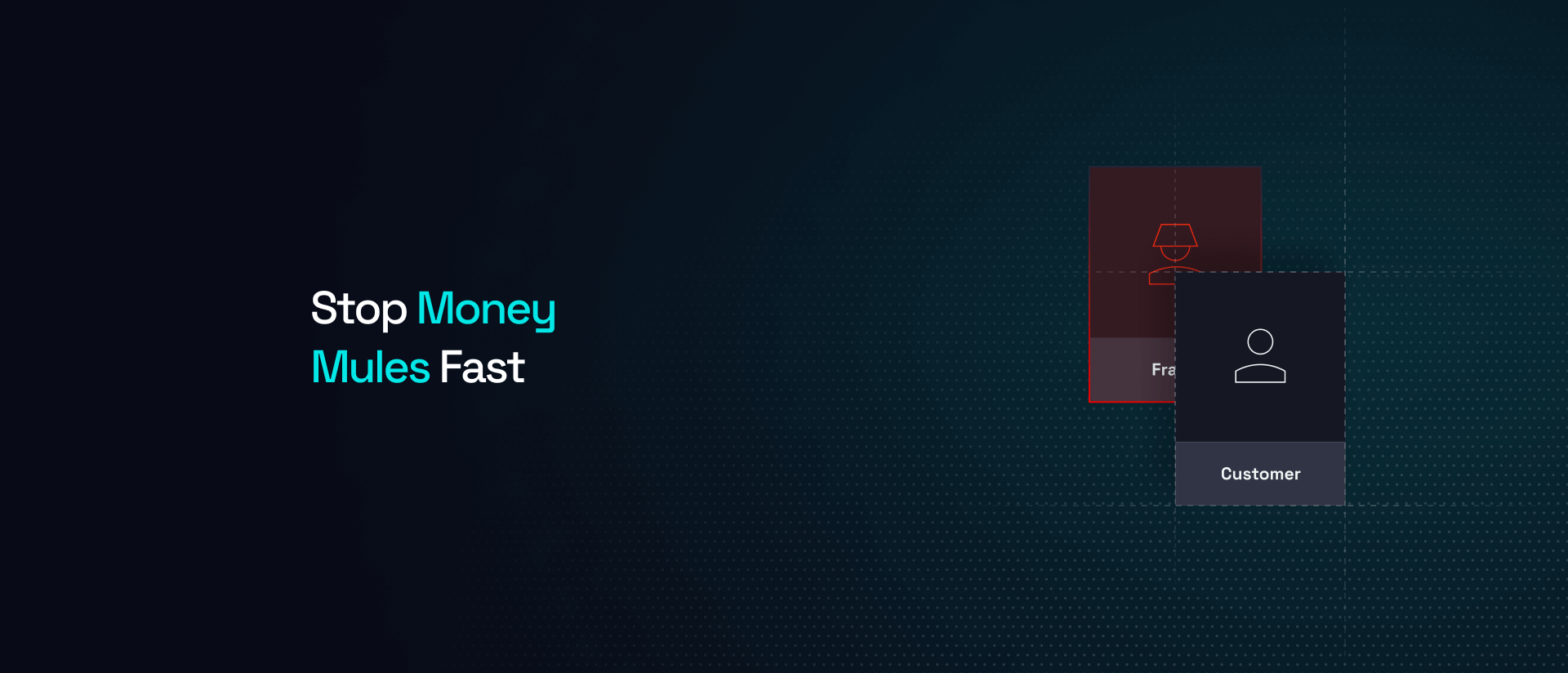A Comprehensive Guide of KYC Crypto: What is It and How is It Regulated?

Accelerate AML Compliance: Meet Regulatory Demands with 80% Less Setup Time
KYC Crypto checks user identities in the digital currency world. It's vital for following financial rules and stopping illegal activities. KYC crypto creates a safe space for transactions.
According to Forbes, the beginning of 2023 witnessed a robust performance in the cryptocurrency realm, signaling a recovery. Bitcoin demonstrated a notable increase, averaging 0.39% in July, reaching approximately $31,000. As of November 9, 2023, BTC stands at $36,815, with a market capitalization of $719.29 billion and a market volume of $25.05 billion. The surge in Bitcoin aligns with expectations, reaching an 18-month peak.
Market fluctuations will persist, but the growth of crypto investments and exchanges suggests a lasting trend. In 2019, the SEC, FinCEN, and CFTC labeled crypto exchanges as money service businesses (MSBs), enforcing KYC and AML rules.
Recognizing the importance of KYC is one thing; implementing it at scale is another. Crypto firms must grasp the essentials of knowing their customers and ensuring KYC compliance.
What is KYC in Cryptocurrency?
KYC Crypto, or Know Your Customer in Crypto (KYC for crypto/ KYC cryptocurrency), means verifying who you are when joining a crypto exchange. Following the law and ensuring quick, secure onboarding is a must-do. Countries have different rules, like needing IDs or online forms.
During KYC, you share basic information, such as:
- Name
- Birthdate
- Address
- ID number
The crypto company checks this using an identity verification service to prevent money laundering and fraud. It's a legal matter for exchanges to keep account information safe.
In simple terms, KYC for crypto is like showing your ID at the entrance – it's a standard and safe process to keep things legit.
Read more: The Power of e-KYC in Enhancing AML Compliance in the MENA Region
Understanding AML in Crypto
AML for crypto (AML crypto) means stopping bad actors. It's rules for exchanges to block criminals. The aim is to keep dirty money out of the legit money world.
AML regulations require account screening, transaction monitoring, and flexible verification, including KYC.
Read more: A Guide to Anti-Money Laundering (AML) for Crypto Firms & AML Vs KYC
KYC in Crypto Exchanges
Crypto exchanges make fast digital transactions easy. But that convenience attracts shady activities and privacy concerns. KYC becomes crucial due to:
- Global regulations are constantly changing.
- Different identity verification technologies.
- Loopholes in global markets and decentralized channels.
KYC lacks a universal definition, causing confusion with varying requirements worldwide. Choosing a crypto platform among hundreds is tough. Strong KYC on top platforms shows commitment to compliance. Other factors to consider:
- User-friendly interface.
- Security and privacy.
- Fair trading fees.
- Available cryptocurrencies.
For crypto exchanges, KYC means:
- Confirming users' information.
- Understanding potential customers' activities.
- Checking if customers might do money laundering.
Challenges for Crypto Exchanges with KYC
Keeping up with KYC rules globally takes a lot of work. Cryptos like Bitcoin easily cross borders due to anonymity and blockchain's security. Countries like the Netherlands, Switzerland, and France tackle this with user ID rules, banning anonymous accounts.
As global regulations get complex, KYC processes become tricky. It involves gathering data, verifying key info, and protecting personal data. The evolving nature of crypto rules adds to the challenge for exchanges worldwide.
1. Global Regulatory Variations:
- Different countries have different KYC rules.
- Adapting to worldwide regulatory changes is challenging.
2. Anonymous Nature of Cryptocurrencies:
- Cryptos like Bitcoin are anonymous.
- This anonymity makes tracking and verifying users difficult.
3. Public Ledger Security:
- Blockchain's public ledger adds security.
- But it also enables easy international trading without strict oversight.
4. Country-Specific Identification Requirements:
- These rules vary, adding complexity to exchanges.
5. Evolution of Regulatory Requirements:
- Global regulations are becoming more complex.
- Adapting KYC processes to changing rules is cumbersome.
6. Verification Process Complexity:
- KYC involves collecting, verifying, and protecting customer data.
- This process can be intricate and time-consuming for exchanges.
Overall, staying compliant with KYC amid evolving global regulations and the unique features of cryptocurrencies poses significant challenges for crypto exchanges.
Comply quickly with local/global regulations with 80% less setup time
VASP and Cryptocurrency
The Financial Action Task Force (FATF) defines the Virtual Asset Service Provider (VASP) as a business that conducts one or more of the following actions on behalf of its clients:
- Swapping virtual for real money.
- Trading different virtual assets.
- Moving virtual assets around.
- Keeping or managing virtual assets.
- Offering financial services for virtual asset sales.
This includes crypto exchanges, ATMs, wallets, and hedge funds. FATF suggests they follow strict AML/CTF and KYC rules like regular banks.
What's KYC for VASPs?
Knowing KYC for VASPs is crucial for navigating digital asset rules. It means checking user identities, ensuring compliance with financial rules, and preventing illegal activities in the virtual asset world.
Understanding KYC for VASPs gives insights into how they follow standards like regular banks, creating a safe and regulated space for virtual asset transactions.
VASPs follow a few steps to prevent fraud:
- Collect customer information like name, birthdate, and address.
- Check it against their official ID and proof of residence.
- Verify identity against databases with info on high-risk individuals.
These steps help VASPs assess money laundering risk. If all's good, customers can use the crypto exchange.
Do Crypto Wallets Conduct KYC?
Crypto wallets come in two main types: custodial and non-custodial. The need for KYC (KYC crypto wallet) typically applies only to custodial wallets, especially those associated with Virtual Asset Service Providers (VASPs). VASPs, regulated entities adhering to FATF guidelines, are obligated to follow KYC procedures, aligning them with traditional bank standards.
Conversely, non-custodial wallets, such as MetaMask, operate without requiring KYC. The distinction arises from the custodial nature of specific wallets, where user funds are held by a third party (custodian), necessitating compliance with stringent KYC protocols for security and regulatory purposes.
Non-custodial wallets empower users with greater autonomy over their funds, often eliminating the KYC requirement for a more streamlined user experience. This distinction allows users to choose between the enhanced security associated with custodial wallets subject to KYC and the flexibility and privacy afforded by non-custodial wallets like MetaMask.
Top 9 Benefits of KYC Crypto
In this section, we will explore the key advantages of Crypto KYC with our breakdown of the top 9 benefits. From enhancing transparency to reducing legal risks, understanding these benefits sheds light on the significance of Know Your Customer processes in the cryptocurrency realm (KYC cryptocurrency).
1. More transparency and customer trust:
- Clear KYC processes make everything open.
- Customers trust a crypto exchange that's transparent.
2. Verifying users' identities builds confidence:
- Checking who's who makes users feel secure.
- Confidence grows when identities are confirmed.
3. Less money scams and laundering:
- KYC stops bad money moves.
- It's a shield against scams and laundering.
4. Identity checks cut fraud and boost reputation:
- Checking IDs slashes fraud risks.
- A good reputation grows with strong identity checks.
5. Lower legal risks with robust KYC:
- Following KYC rules means fewer legal worries.
- It's a shield against legal troubles.
6. Stay ahead of changing legal requirements:
- KYC adapts to new laws quickly.
- Being ahead keeps everything legal.
7. Reducing fake identities and ensuring compliance:
- KYC stops fake IDs in their tracks.
- It makes sure everything follows the rules.
8. Boosting market stability by verifying identities:
- Verified IDs mean a stable market.
- Stability grows when identities are checked.
9. Less volatile market with KYC's contribution to stability and growth:
- KYC helps keep the market steady.
- Fewer ups and downs mean steady growth.
Manual vs. Automated Crypto KYC Checks
Manual KYC checks involve humans reviewing and verifying customer information. It's slow, prone to errors, and costly for businesses. People manually check documents like IDs and utility bills to confirm identities.
On the flip side, automated KYC checks use technology like AI and algorithms. They're faster, more efficient, and reduce errors. Automated systems swiftly verify customer details, cross-check against databases, and provide instant results. It's a tech-driven approach to ensure compliance.
Manual checks rely on human judgment, which can lead to inconsistencies. Mistakes may occur in interpreting documents, and the process takes time and effort. Plus, manual labor means higher costs for businesses, impacting efficiency.
Automated KYC is speedy and consistent. The technology ensures uniformity in checking and verifying customer data. Algorithms process vast amounts of information in seconds, reducing the chance of errors and providing quick, accurate results.
Human checks are subjective and might miss subtle patterns. Automated systems, however, follow set criteria without biases. They efficiently detect anomalies and potential risks, enhancing the accuracy of KYC processes.
Manual KYC processes lack scalability. Handling a growing number of customers becomes challenging and increases the risk of errors. It's not easily adaptable to the increasing demands of a growing business.
Automated checks easily scale with business growth. They handle large volumes of data efficiently. As customer numbers increase, automated systems maintain speed and accuracy, ensuring seamless KYC compliance.
While manual KYC has a personal touch, it's time-consuming and costly. Automated KYC offers speed, efficiency, and scalability. The choice between them depends on a business's needs, balancing human involvement with technological advantages.
Conclusion
In conclusion, crypto KYC, or Know Your Customer, is crucial for a safer and trustworthy digital currency environment. Verifying user identities prevents scams and money laundering. Though some seek privacy, KYC is essential for regulatory compliance and market stability.
KYC is crucial for safe crypto. Verifying users stops scams and bad money moves. It's a legal shield and keeps the market steady. Privacy matters, but KYC is everyone's job for a secure crypto future.
FAQs
Q1. What information is required for crypto KYC?
Typical KYC information includes your full name, address, date of birth, and an official ID like a passport or driver's license. Additional details may be needed depending on the platform.
Q2. How long does the KYC process take?
The duration varies but usually takes a few minutes to a few days. It depends on the platform, the application volume, and the completeness of the submitted documents.
Q3. Is my personal information safe during KYC?
Reputable crypto exchanges use secure encryption and follow strict privacy policies. Your personal information is safeguarded, but choosing trustworthy platforms is essential.
Q4. How often do I need to undergo KYC?
The frequency depends on the platform's policies and regulatory requirements. Periodic reviews may occur, especially if there are changes in your transaction patterns.











.jpg)
.jpg)
.jpg)